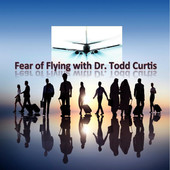The Federal Aviation Administration (FAA) announced on 31 October 2013 that it will allow passengers to use personal electronic devices (PEDs) during all phases of flight, and is immediately providing the airlines with guidance for implementing these changes.
These changes will not happen immediately. Airlines will first have to review their fleets and prove to the FAA that that they can safety allow passengers to safely use their devices in all phases of flight. The FAA expects that many airlines will be able to do so by the end of the year.
As with most changes to FAA regulations, these changes happened only after extensive consultations with technical experts and other representatives from the experts from the airlines, aircraft manufacturers, and the consumer electronics industry, as well as representatives from pilot, passenger, and flight attendant organizations.
What this means for passengers
These upcoming changes mean that passengers will soon be able use smaller devices like iPads, mobile phones, handheld video games, and ebook readers on the ground or in the air, with very limited exceptions. Electronic items will have to be either held or placed the seat back pocket during the actual takeoff and landing. The key rule changes that passengers should be aware of include the following:
- Changes to PED policies will not happen immediately and will vary by airline, and may not apply to your particular aircraft. Check with your airline to see if and when you can use your PED.
- Current PED policies remain in effect until an airline completes a safety assessment, gets FAA approval, and changes its PED policy.
- Your airline may have a PED use policy that is more restrictive than the FAA policy.
- While in flight, mobile phones and devices that can connect to the Internet will have to remain in airplane mode while in flight (the cellular connection must be disabled).
- You may use the Internet connection on your device if your airline offers an in-flight wireless connection.
- Even if your airline offers an in-flight wireless connection, it may not allow you to make voice calls using Skype or a similar Internet-based voice communication system.
- Your airline may also allow you to use short-range Bluetooth accessories, like wireless keyboards.
- You will have to stow heavier devices like laptops under seats or in the overhead bins during takeoff and landing.
- During the safety briefing, the airline will request that you pay attention to the safety briefing.
- There may still be some situations where the airline may request that you not use your PED, and if this happens, follow crew instructions and immediately turn off your device.
Related resources
- Advice on the use of personal electronic devices 31 October 2013 BBC interview with Dr. Curtis about the rule changes
- 3 May 2012 WTOP interview with Dr. Curtis arguing for a change in the old policy
- Protecting your laptop when you fly
Photo credit: Anna Langova











1. American Airlines,/AMR corporation purchased the assets of TWA in April of 2001, THIS WASN'T A MERGER! TWA employees were offered jobs at American, an offer American Airlines did not have to make.
ReplyDelete2. TWA declared bankruptcy in January 10, 2001...so this had NOTHING to do with 9/11! TWA hadn't made money in ANY quarter for over 13 years! TWA had also declared bankruptcy in 1992 and 1995. TWA was a money loser, for many years and many reasons.
3. The local TWA ALPA and ALPA national did the best they could negotiating from an extremely weak bargaining position. AMR had every right to take a "take-it-or-leave-it" approach. They didn't owe TWA anything. TWA employees are lucky for the consideration they received. The only other alternative was Chapter 7 bankruptcy, and then all TWA employees would have been out of work.
4. The biggest TWA complainers, the number one being the gentleman interviewed in this article (Alan Altman) and repeatedly for this case,was hired during the final few years of TWA's existence and would have held a junior position or worse furloughed at any other airline. This junior employee and others sought employment at TWA knowing the airline was teetering on the brink of collapse. It was a gamble to work there. The only reason TWA was doing any hiring in those final years was due to attrition of employees "jumping ship" to healthier airlines. Yet he still feels ALPA, TWA and American owe him something.
5. What killed TWA was Carl Ichan, not ALPA, 9/11 or the Airline Deregulation Act of 1978.
6. I have listened to former TWA employees complain about this for years! With every passing year the facts of this case have become more and more embellished. Bottom line, look at the state TWA was in during the 1990's. They were closing their doors for good in January 2001, when AMR decided to snap up the assets. The rest of their story is all BS.
7. Where do the former TWA pilots think this money is coming from? American Airlines pilots, the TWA/ALPA? No. Half the money comes from insurance, the other half comes from the dues money collected over the last decade from ALPA pilots at other airlines that have had nothing to do with this case. So the former TWA pilots are penalizing the pilot groups of United, Delta, FedEx, Alaska and a dozen or so regional airlines. The TWA pilot group has no become the pariahs of the airline industry. What a bunch of whiners!